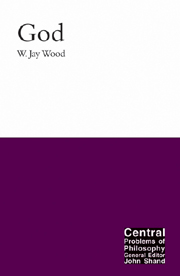Book contents
- Frontmatter
- Contents
- Introduction
- 1 Design arguments
- 2 Cosmological arguments
- 3 The ontological argument
- 4 The moral argument for God's existence
- 5 Religious experience and cumulative case arguments
- 6 Religious belief without evidence
- 7 The problem of suffering
- 8 The nature of God
- Conclusion
- Notes
- Bibliography
- Index
3 - The ontological argument
- Frontmatter
- Contents
- Introduction
- 1 Design arguments
- 2 Cosmological arguments
- 3 The ontological argument
- 4 The moral argument for God's existence
- 5 Religious experience and cumulative case arguments
- 6 Religious belief without evidence
- 7 The problem of suffering
- 8 The nature of God
- Conclusion
- Notes
- Bibliography
- Index
Summary
The teleological and cosmological arguments arise out of commonplace experiences of a contingent world that displays order. The ontological argument, by contrast, is purely a priori, which is to say, it is not grounded in everyday experience but arises from reflection alone. In a nutshell, it claims that if one truly understands the concept of God and what it is for God to be perfect, one must acknowledge that he exists, for a truly perfect being could not lack existence and still be perfect. As we will see, it is one of the more abstruse arguments in the philosophical repertoire, as it turns on complex reflections about the nature of necessity and the possibility of a necessarily existing being. Ever since it was first penned by Anselm of Canterbury nearly a thousand years ago, it has commanded considerable attention from some of philosophy's leading lights: Berkeley, Locke, Hume, Descartes, Spinoza, Leibniz, Kant, Hegel and Schopenhauer, among others, wrestled with it, some to defend and others to reject it. Even Bertrand Russell, one of the twentieth century's most famous atheists was, for a time, convinced by it.
I remember the precise moment, one day in 1894, as I was walking along Trinity Lane, when I saw in a flash (or thought I saw) that the ontological argument is valid. I had gone out to buy a tin of tobacco; on my way back, I suddenly threw it up in the air, and exclaimed as I caught it: “Great Scott, the ontological argument is sound.”
(Quoted in Oppy 1995: 6)- Type
- Chapter
- Information
- God , pp. 51 - 64Publisher: Acumen PublishingPrint publication year: 2010

